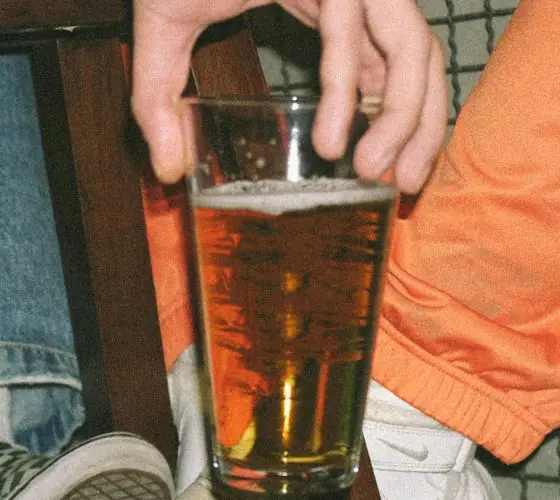
ARCHITECTURE AND URBANISM
ARCHITECTURE AND URBANISM
ARCHITECTURE AND URBANISM
ARCHITECTURE AND URBANISM
ARCHITECTURE AND URBANISM
ARCHITECTURE AND URBANISM
The cityscape of Daugavpils reflects its complex history—from religious diversity to Soviet urban planning and the modern revival of the city.
The shore of Lake Stropu
Daugavpils is a city of water. Surrounded by lakes and rivers, one of its most beautiful spots is Lake Stropu. Within the city limits, you’ll find a sandy beach, a pine forest park, and quiet cottage-lined streets.
We recommend a walk along the landscaped lakeside, past tidy houses—it’s lovely here in any season.

Churches
Religious diversity is part of Daugavpils’ cultural code. This diversity is tied to its unique geography: before World War II, the city was within the Pale of Settlement, and nearly half of its residents were Jewish. During the German occupation, almost all were killed.
At that time, Daugavpils had around forty-five synagogues; today only one remains—Kaddish, built in 1850. Its restoration was supported by the family of Mark Rothko, the world-renowned artist born right here.
Catholic, Orthodox, Lutheran, and Old Believer churches stand literally side by side in Daugavpils. We recommend visiting two Catholic churches: the Roman Catholic Church of the Blessed Virgin Mary on Church Hill (built in 1905), and Saint Peter’s in Chains Roman Catholic Church, reminiscent of a smaller version of Saint Peter’s Basilica Vatican City.
Church Hill also features the Neo-Gothic Martin Luther Cathedral (1893), the Orthodox Saints Boris and Gleb Cathedral (1905), and the Daugavpils First Old Believer Community’s Prayer House (1928)—as Latgale still remains home to many Old Believers.
These churches are not just architectural monuments but reminders of how different cultures have coexisted here for centuries.


The Rīgas Pedestrian Street
The main street of Daugavpils, lined with numerous cafés and shops. On holidays, it hosts cultural events and street performances. Sculptures and street art make it vibrant all year round. Conveniently located, the street connects the central railway station with the main square and the Daugava River.
Daugavpils tram
The tram system began operating in 1946 and still connects various parts of the city—from the center to Lake Stropu. Only three Latvian cities have trams—Rīga, Liepāja, and Daugavpils—but here they fit especially naturally into the urban landscape.
The network covers the whole city: you can ride straight from downtown to Lake Stropu. For something special, take a tour on a vintage tram built in the mid-20th century.


CULTURE
CULTURE
CULTURE
CULTURE
CULTURE
CULTURE

The Mark Rothko Art Centre
The world-famous abstract artist Mark Rothko was born in 1903 in the city then called Dvinsk (now Daugavpils), under the name Markus Yakovlevich Rothkowitz. In 1913, fleeing Jewish pogroms, he emigrated to the USA with his mother and sister, where he became a globally renowned artist.
The idea to create a museum in his honor appeared in 2002, and it finally opened in 2013. Today, the Mark Rothko Art Centre operates in a former artillery arsenal within Daugavpils Fortress—one of the city’s most atmospheric sites. Here you can see original works by Rothko, as well as temporary exhibitions and cultural events that blend contemporary art with historical space.

Daugavpils University
Founded in 1921, Daugavpils University is one of the largest in Latvia. Students come here from all over the country and abroad. Instruction is offered in both Latvian and English, and the five faculties cover natural sciences, humanities, arts, social sciences, and pedagogy.
Local media outlet Chayka published an article listing seven reasons to study at the university of their hometown.

Šmakovka Museum
Šmakovka is a traditional Latgalian alcoholic drink whose origins are still debated. Essentially, it’s a kind of moonshine, historically made from various ingredients—sugar, grain, even honey. Daugavpils has dedicated an entire museum to it.
Here you can learn about the history of home distilling, see antique stills, hear stories from local craftsmen, and, of course, taste the product.

Chayka Media
Chayka is an independent media outlet founded in Daugavpils. For over seven years, they’ve been covering local, Latvian, and global events, telling stories from the past, and maintaining a strong online presence across Instagram, YouTube, Telegram, Facebook, TikTok, and their website. Most of their content is in Russian, but a Latvian-language version is also available.
FOOD AND DRINKS
FOOD AND DRINKS
FOOD AND DRINKS
FOOD AND DRINKS
FOOD AND DRINKS
FOOD AND DRINKS
ТЕСТО bakery
Probably one of the best places in Daugavpils (and maybe all of Latvia) for cinnamon rolls and éclairs—and the coffee is excellent too. Located right on Rīgas Street, near the railway and bus stations, it’s a perfect stop before or after your journey.


skovoroTka & GOSHA by TECTO bakery
Two neighboring restaurants, both full of flavor and personality.
skovoroTka—for lovers of hearty meat dishes and homemade appetizers.
GOSHA by TECTO bakery—a gastronomic greeting from Georgia, where dough is the king of the table. Khachapuri, khinkali, crispy flatbreads—all made with warmth and soul.
You can check their menus on their Facebook pages: GOSHA and skovoroTka.

facebook.com

facebook.com
Gubernators
One of the most atmospheric restaurants in the city, located in the basement of a building at Lāčplēša Street 10. With vaulted ceilings, warm lighting, and a slightly mystical vibe, it’s the perfect place for a slow dinner and a beer.
The building itself has a fascinating history: in the 1920s it housed a Jewish secondary school, in the 1930s a commercial college and bank offices, during the war the Gestapo, and later—laboratories of the Pedagogical Institute. For the past 25 years, it’s been home to a beloved beer restaurant known for generous portions, historic interiors, and local legends.










